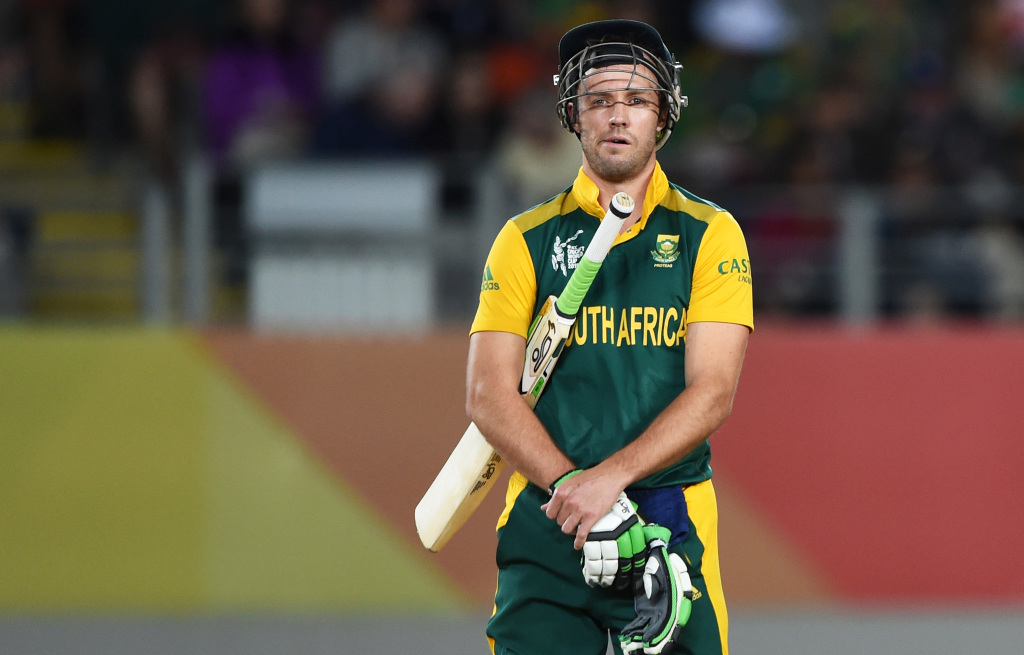South Africans don’t exit a World Cup party early without stopping for a rumble in the carpark, arguing who was to blame.
So, no surprise here. The plan was to triumphantly raise the World Cup in front of a full Melbourne Cricket Ground crowd, forcing hosts Australia to acknowledge who wore the pants on the international stage.
It didn’t happen and instead, within days of losing to New Zealand in the semi-finals, there were stories about political team interference. In a few damaging headlines the uplifting #ProteaFire campaign was extinguished.
Despite vehement denials relating to selection interference, Cricket SA chief executive Haroon Lorgat didn’t convince against allegations that he had ‘reminded’ coach Russell Domingo of his obligations to the ‘numbers game’ before the semi-final against New Zealand.
‘There was and is no political interference in our selections. I’ve never heard any nonsense like that in my entire tenure as team administrator. I was at the World Cup, I was in the vicinity of the team and there was no interference from the minister [Fikile Mbalula],’ he said.
You know what? I believe Lorgat when it comes to Mbalula. I don’t believe Mbalula would have interfered at that late stage. If the minister was cut from that cloth he would have questioned why Aaron Phangiso, the only black African in the 15-man squad, did not get selected for even one match in the eight the Proteas played. But, in exonerating Mbalula, and cleverly manoeuvring the allegation of political interference, three other questions needed to be asked of a man who was once convener of selectors.
1) South Africa’s nine-wicket win over Sri Lanka in the quarter-final was arguably the best ODI performance in the past decade. Why was the team changed for the semi-final against New Zealand?
2) Who was the person who felt Vernon Philander was a better choice than the in-form Kyle Abbott for the semi-final? It’s not a difficult question to answer if it was made on cricketing grounds. It would just have been another selection that failed.
3) Did the Proteas captain and coach agree that the side to play New Zealand in the semi-final was their preferred XI?
What followed was another media statement, followed by a closing ‘CSA will not comment further’.
The three questions went unanswered as the calendar clicked over to April and beyond.
There is no suggestion that Philander cost South Africa the semi-final. I feel desperately sorry for a man who has represented South Africa with such excellence to be drawn into a political issue. But Philander, like Charl Langeveldt and Justin Ontong before him, will forever feature highly when they are ‘Googled’ in relation to being selected on the basis that their skin was darker than Andre Nel, Jacques Rudolph and now Abbott.
While the political mudslinging will continue like two drunks grappling in that carpark after the party, South Africa’s exit can be easier explained.
Now that everyone has sobered up and the sun has risen on a new dawn, here is the reality.
Had South Africa managed to win the tournament it would have been brutal daylight mugging of the highest order.
Firstly, the selectors fluffed their lines when they named their squad of 15. Every armchair critic is a national selector and every man, woman and boy saw before the tournament that there were problems with No 7 in the order and with the fifth bowler. They were proved right.
As for Phangiso. South African cricket did what their Bok rugby counterparts do so often on the end-of-year tours: they bulk up the ‘black’ numbers by picking players who are no more than tackle bag carriers. What transpired is that Phangiso went to the World Cup to bowl in the nets, carry the drinks and field as a substitute when someone limped off injured.
He is 31. Why not rather take the burgeoning 19-year-old Kagiso Rabada for the experience if they wanted a black African in the squad? And he’s already won a World Cup before he turned 20.
On the field, South Africa won five matches – against a hapless West Indies, Zimbabwe, Ireland and the UAE, before hammering Sri Lanka in the semis. That was clinical, but with all that momentum and with real #ProteaFire in their eyes, the good work was undone by a late night SMS, allegedly.
The Proteas meanwhile lost heavily to India, crumbled against Pakistan and were nervy in a rain-affected setback against New Zealand.
In 61 previous ODIs, the Kiwis had never reached 299 against South Africa in an ODI. Here they got the score in 42.5 overs as the bowlers struggled, while the fielders botched a couple of run-outs and a catch at a crucial time. Pressure told.
Take AB de Villiers’ all-round brilliance and influence out of the team – he scored the most runs for his country, took the same number of wickets as Philander (at a better average), effected three run-outs and captained well – and South Africa would have looked a largely sorry sight.
However, they didn’t deserve their campaign to end dragged into the murky waters of politics and dark forces at play.
Sure, the selectors sent the wrong 15 men to Australasia, but they went as ambassadors and flew the national flag like ambassadors. Thirty minutes after the devastation of the World Cup exit, they were in the Kiwis’ dressing room, sharing a beer with the victors.
De Villiers and his players proved classy in victory and defeat. They deserved better than the way in which their campaign will be remembered.
This column appears in the current issue of Business Day/Sunday Times Sport Monthly.







